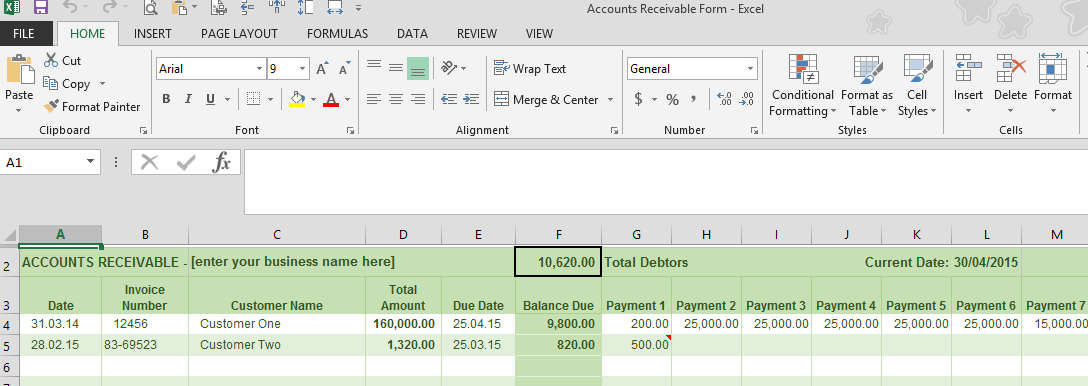Content

Taxpayers have the right to know about IRS decisions affecting their accounts with clear explanations of the outcomes. Regulationsare DOR’s official interpretations of Massachusetts tax statutes. DOR issues regulations after public hearings in order to communicate clearly to taxpayers and their representatives the Department’s position on a particular issue or specific provisions of the law. Industry groups, tax professionals and private individuals are encouraged to take part in the regulatory process. The Massachusetts estate tax was “decoupled” from the federal estate tax.
Clauses and of subparagraph shall only apply to complaints and allegations of serious employee misconduct. Action and any monies paid as a settlement of such complaints and allegations. The Commissioner shall establish procedures requiring a formal response to all recommendations submitted to the Commissioner by the National Taxpayer Advocate within 3 months after submission to the Commissioner. For Tax Administration, the National Taxpayer Advocate shall not contain such information in the report submitted under such clause. On the objectives of the Office of the Taxpayer Advocate for the fiscal year beginning in such calendar year.
FEDERAL TAX LAW
It is not a charter of rights but a provision requiring that increases in overall tax revenue be tied to inflation and population increases unless larger increases are approved by referendum. As the IRS Commissioner noted, the Taxpayer Bill of Rights does not create new rights. Rather, the Taxpayer Bill of Rights is intended to serve an educational purpose to help taxpayers understand better their existing rights. Taxpayer’s rights of confidentiality extend to tax preparers. Tax preparers should not disclose any taxpayer information to others without the express permission from the taxpayer. Little wonder — explanations of these rights are sprinkled throughout the U.S.
Personal state programs are $39.95 each (state e-file available for $19.95). Most personal state programs available in January; release dates vary by state. Receive 20% off next year’s tax preparation if we fail to provide any of the 4 benefits included in our “No Surprise Guarantee” (Upfront Transparent Pricing, Transparent Process, Free Audit Assistance, and Free Midyear Tax Check-In). Description of benefits and details at hrblock.com/guarantees. The right to retain representation – You’re entitled to retain an authorized representative of your choice, such as a Certified Public Accountant or Enrolled Agent , to represent you in front of the IRS.
Publication Highlights
In Florida, AFP lobbied the Taxation and Budget Reform Committee to place a TABOR on the November 2008 ballot. And in Texas, AFP spearheaded the Taxpayer Protection Act concept of giving taxpayers greater control over how much government taxpayers want and are willing to pay for. It was also on the 2008 Republican Primary Ballot as a nonbinding initiative. These procedures will not replace the administrative procedures for taxpayers who are formally appealing any proposed tax assessment. The IRS now has the burden of proof in any court proceeding on a factual issue once a taxpayer presents credible evidence to the contrary.
All corporate excise taxpayers are also granted an extension of time to file their tax returns as long as certain payment requirements are met by or before the original due date of the return. Generally, to meet these payment requirements, corporate excise taxpayers must have paid the greater of 50 percent of the total amount of tax ultimately due or the minimum corporate excise by the original due date for filing the return. For personal income taxpayers the due date for payment of the tax is on or before April 15 each year. For estate tax, the payment due date is nine months after the date of the decedent’s death, unless DOR has affirmatively granted a later date.
Your rights as taxpayers
However, filing an appeal will stay the accrual of late-pay penalties on any unpaid contested amounts resulting from an audit assessment. You also can seek resolution to an ongoing problem by contacting the Office of the Taxpayer Advocate. This office was created to ensure that taxpayer concerns are addressed fairly and expeditiously at the executive level. The Taxpayer Advocate is DOR’s ombudsman, and acts as an independent voice in reviewing protracted individual cases. The Advocate works to ensure that taxpayers are afforded their rights in all communications with the Department.
- For personal income taxpayers the due date for payment of the tax is on or before April 15 each year.
- Taxpayers use this form to ask the IRS to accept less than the full amount of tax debt.
- The Office of the Taxpayer Advocate shall be under the supervision and direction of an official to be known as the “National Taxpayer Advocate”.
- Rubio’s request comes in response to constituents who have traditionally relied on printed copies of the IRS’ Publication 17, which provides instructions for most people filing taxes.
- The IRS will include Publication 1 when sending a notice to taxpayers on a variety of issues, such as an audit or collection matter.
- Take time to read this pamphlet if you are being audited or dealing with an IRS collector.
I can’t imagine an ordinary taxpayer taking this issue to court, but for multimillion-dollar cases, this could be significant. You must be sent a Notice of Intent to Levy before the IRS seizes your property. In practice, if you owe the IRS, you’ll have no legal grounds to contest. This freeze period, however, gives you time to negotiate further with the IRS.
Key Organizations for Your rights as taxpayers
If the erroneous lien is obstructing a lawful transaction, such as a transfer of property, the Department will immediately issue a lien termination to the appropriate parties. A copy of the lien termination and letter explaining the error will be mailed to the major credit reporting companies. It will take action, including recommending legislation, to change those items needing clarification, amendment, or withdrawal. DOR’s Rulings and Regulations Bureau issues public written statements that explain the Commonwealth’s tax laws in detail, all of which are available at DOR’s onlineLegal Library, 24 hours-a-day, seven days-a-week. These documents are useful tools for taxpayers and tax practitioners who want to know DOR’s official stand on an issue.
- If amending your return on MassTaxConnect is not an option and you are not required to file electronically, you can check the amended return box on your paper return and file it the way you usually do.
- The IRS will not tolerate discrimination based on age, color, disability, race, reprisal, national origin, English proficiency, religion, sex, sexual orientation or status as a parent.
- A federal court can award up to $100,000 to a taxpayer if an IRS employee negligently breaks the law in collecting a tax bill and up to $1 million if the employee willfully violates the bankruptcy code automatic stays or discharge provisions.
- Please read all bills as soon as you receive them because interest and, in some cases, penalties will accrue on unpaid taxes.
Certain notices must include the amount of the tax, interest, and certain penalties you owe and must explain why you owe these amounts. “Mutual funds don’t require lot of money, time”. The concept is connected to several laws that have been passed. Examples include the Omnibus Taxpayer Bill of Rights , the Taxpayer Bill of Rights 2 passed in 1996, and the Taxpayer Bill of Rights III passed in 1998. The allowance for spending to grow at the rate of inflation plus population growth means that inflation-adjusted per capita spending generally did not decrease. This was known as the “ratchet-down effect,” and it occurred in FY2001–02 and FY2002–03.
Every taxpayer needs to be aware of these rights in the event they need to work with the IRS on a personal tax matter. Line balance must be paid down to zero by February 15 each year. Year-round access may require an Emerald Savings® account. Enrolled taxpayer bill of rights Agents do not provide legal representation; signed Power of Attorney required. H&R Block Free Online is for simple returns only. Federal pricing will vary based upon individual taxpayer circumstances and is finalized at the time of filing.
What are the rights of taxpayers in Nigeria?
Such rights as right to life, right to dignity of human person, right to personal liberty, right to privacy and family life, right to own moveable and immoveable property, the right to fair hearing and right to freedom from discrimination are intrinsically available to taxpayers in Nigeria, however so many tax laws and …
Annual statements must be sent to debtors on IRS installment agreements showing the past year’s payments and the remaining balance. IRS supervisory approval is required for any lien, levy, or seizure to affirm that the collector’s action is appropriate under the circumstances. Circumstances include the amount due and the value of the asset. Restricts gunslinger collectors from acting on their own. Since levies and seizures decreased dramatically after the IRS reform act, this provision may deserve part of the credit.

